25 of the most stunning parks and gardens around the world
Zoë Miller,Matthew Wilson

- From Norway to China, these are the most beautiful gardens and parks in the world.
- In Cornwall, England, the Lost Gardens of Heligan is home to sculptures straight from a fairy tale.
- Some of the world's oldest gardens are located in the Ancient City of Sigiriya in Sri Lanka.
- Visit Insider's homepage for more stories.
Stunning gardens and parks can be found across the world, and these photos give us a glimpse at their beauty.
From Norway's Tromsø Arctic-Alpine Botanical Garden — the northernmost botanical garden in the world — to Sigiriya, an ancient rock fortress in Sri Lanka that boasts some of Earth's oldest landscaped gardens, there's a verdant enclave to suit every taste.
Read on to learn about 25 of the most stunning gardens around the world.
Read the original article on InsiderIn Cornwall, England, the Lost Gardens of Heligan is like a fairy-tale come to life, featuring some whimsical garden sculptures.
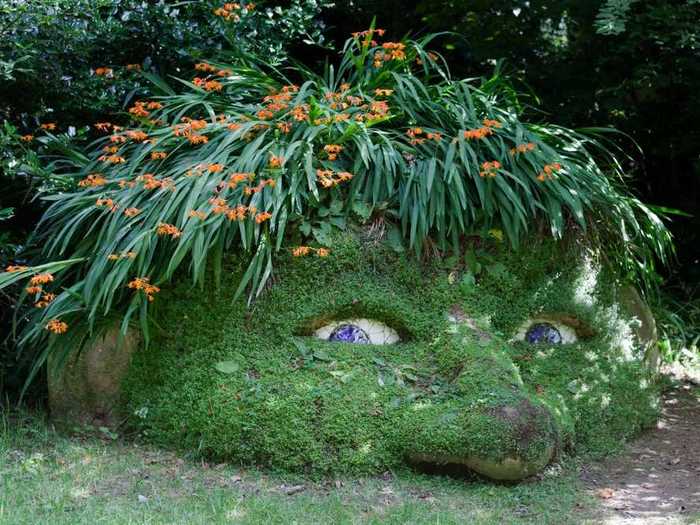
Located on a Cornwall estate that was originally built in 1200s, the Lost Gardens of Heligan — famous for its whimsical stone statues, like the sleeping Mud Maid — live up to the name.
During World War I, the estate became overgrown due to neglect. However, the property was never sold or developed. Fortunately for plant lovers everywhere, workers restored the forgotten gardens to their original glory in the 1990s.
Today, there is a jungle area filled with bamboo tunnels and pleasure grounds that feature historic plantings from around the world.
- Read more:
- 18 stunning photos of flower fields in bloom around the world
- The most scenic hike in every state
- 50 of the most beautiful natural wonders around the world
- Being outside can improve memory, fight depression, and lower blood pressure — here are 12 science-backed reasons to spend more time outdoors
Portland, Oregon, has its very own tranquil Japanese Garden.
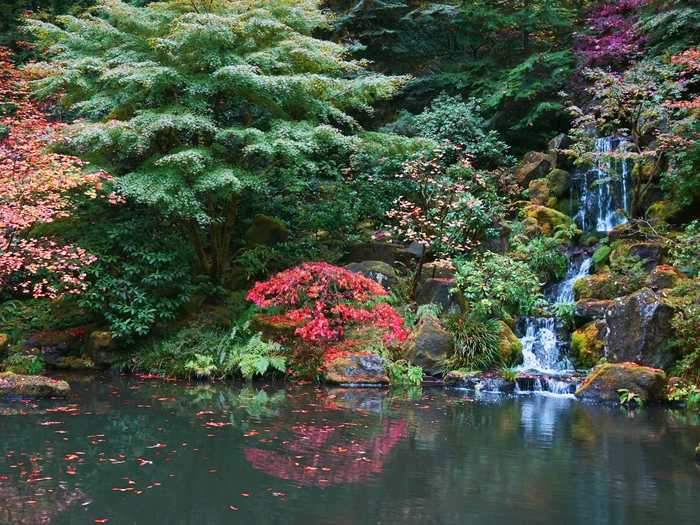
Divided into eight tranquil spaces, the Portland Japanese Garden will transport you to the Land of the Rising Sun.
For instance, the sand and stone garden is based on the aesthetic principle known as yohaku-no-bi, "the beauty of blank space," while the strolling pond garden was popularized by aristocrats and feudal lords during the Edo period (1603–1867).
The Royal Botanic Gardens Victoria is located in the suburbs of Cranbourne, Australia. and is known for its iconic red sand.
Spread out over 865 acres, the garden features 170,000 native Australian plants. In the surrounding bushland and wetlands, there are 20 native mammal species and 11 amphibian species.
Located in Saint-Jean-Cap-Ferrat, France, the Villa Éphrussi de Rothschild Gardens is known for its variety of themed gardens.
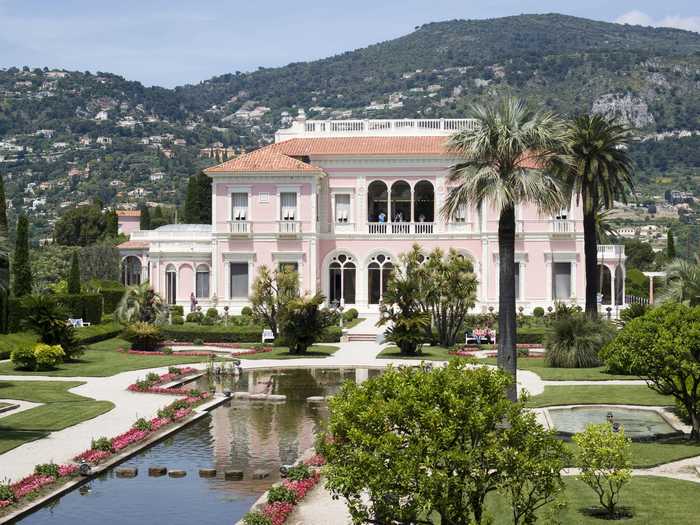
The Villa Éphrussi de Rothschild, a Venetian-style villa, was built by Rothschild baroness Béatrice Éphrussi in the early 20th century.
Appropriately, the villa's centerpiece is the French garden, where there are waterfalls, ponds, and a "Temple of Love" inspired by the Petit Trianon at Versailles. The other sections range from a lavender-filled Provençal garden to a Spanish garden, which has Mediterranean pomegranate trees.
Located in New York City, the High Line is a former elevated freight railroad track repurposed into a public park.
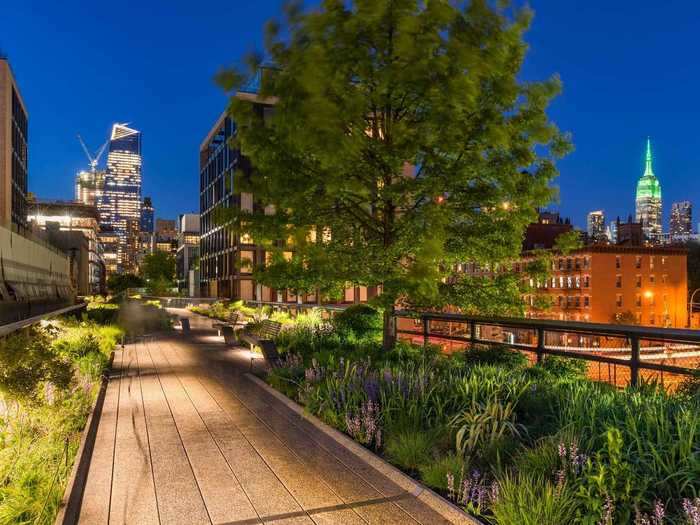
Stretching 1.45 miles, the High Line is one of New York City's most popular attractions, drawing 5 million people a year. Lined with 400 plant species, from wildflowers to grasses, it's a unique urban oasis.
The Master of the Nets Garden, in Suzhou, China, is a UNESCO World Heritage Site.
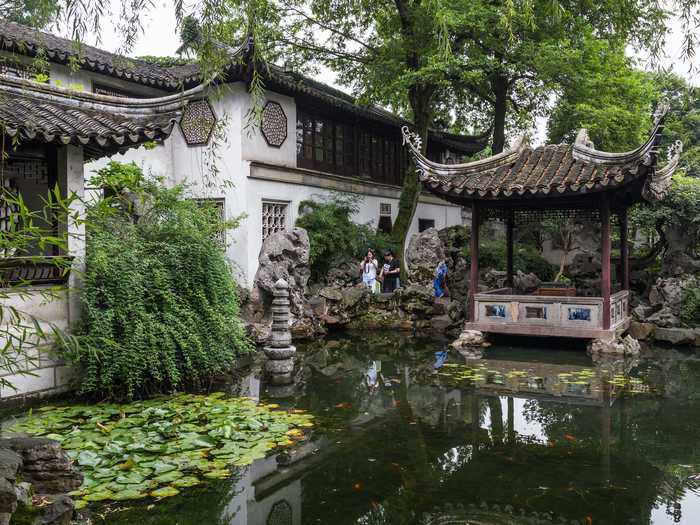
The garden is one of the Classical Gardens of Suzhou (a city west of Shanghai). Dating to the 12th century, it features a labyrinth of windowed courtyards that give the illusion that the site is more spacious than it really is.
"Words cannot really explain how I felt walking around this garden," writes a TripAdvisor user. "Astonishing place."
In Cape Town, South Africa, the Kirstenbosch National Botanical Garden features a winding walkway that gives visitors a view from above the trees.
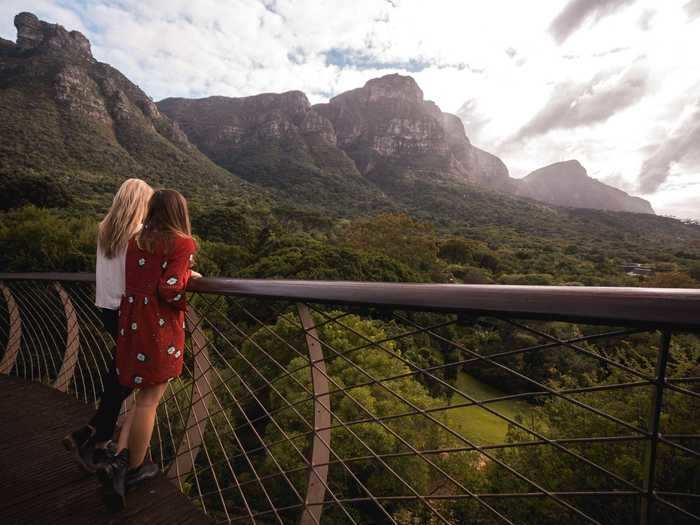
Although Kirstenbosch ("Kirsten's Forest") has sheltered people for millennia, the land was not used as a garden until the early 20th century.
The garden is known for its canopy walk, which offers excellent views of the flora — such as fynbos, a type of vegetation native to the southern tip of Africa. Made from curved steel and timber, the winding walkway spans more than 426 feet and lifts visitors 39 feet above the ground.
In Fukuoka, Japan, the roof of the ACROS Fukuoka Prefectural International Hall is covered in a forest of trees and plants.
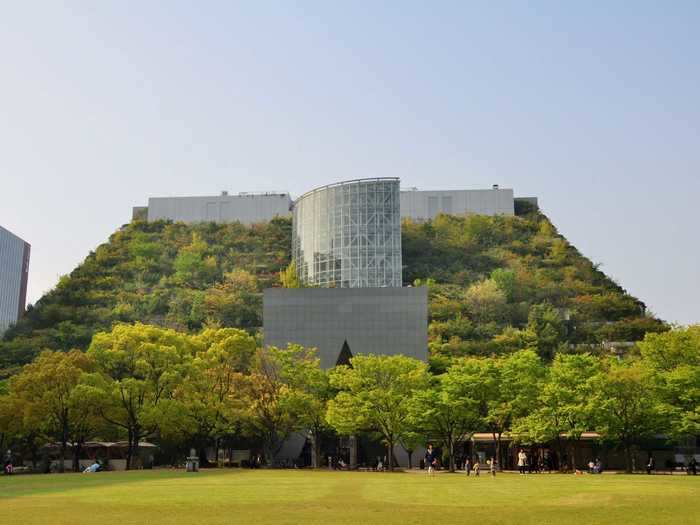
Both a building and a park, ACROS — which houses a music hall, a conference center, and more — was spearheaded by Emilio Ambasz, an Argentinean architect and industrial designer.
ACROS is crowned by a 25-acre green roof that spans 15 stepped terraces.
In Darmstadt, Germany, the Waldspirale garden is located on the winding roof of an apartment building.
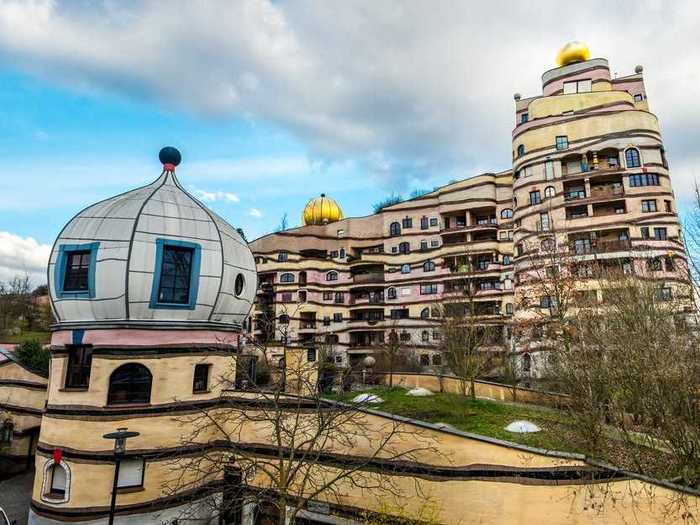
Designed by Austrian-born artist and architect Friedensreich Hundertwasser, the Waldspirale ("forest spiral") — an apartment building in southwest Germany — epitomizes his characteristic disdain for straight lines.
A forest of lime, maple, and beech trees crowns the unusual building.
Located in Tromsø, Norway, the Tromsø Arctic-Alpine Botanical Garden is the world's northernmost garden.
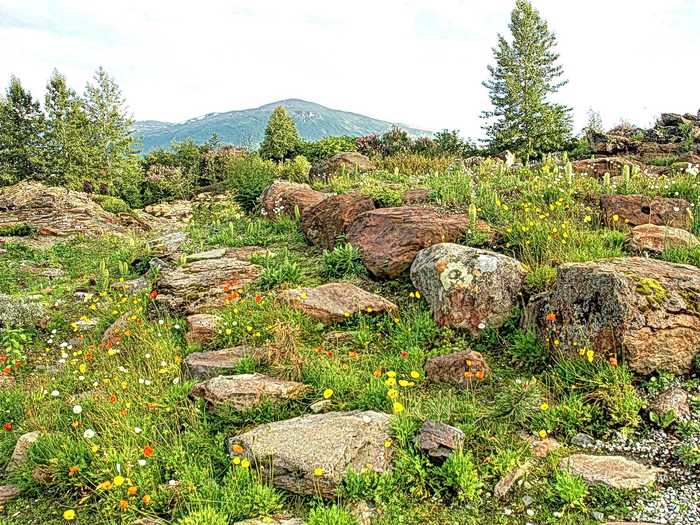
Tromsø is a town in northern Norway that's spread out across two islands. Although this garden features thousands of plant species from around the world, its main focus is on plants from the polar regions.
The Garden of Cosmic Speculation is a science- and math-themed garden in Dumfries, Scotland.
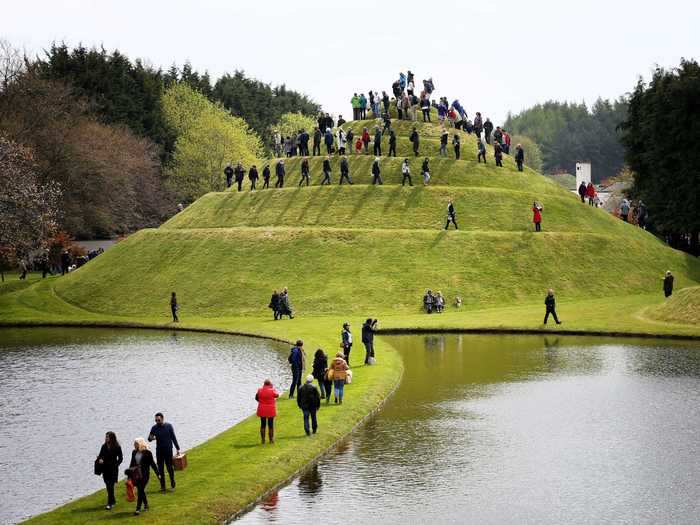
The Garden of Cosmic Speculation was created by landscape designer and cultural theorist Charles Jencks at his home near Dumfries, Scotland.
It comprises 40 areas where visitors can explore Jencks' bridges, sculptures, and other architectural works. Inspired by science and math, the garden's installations explore themes like black holes and quarks.
In Singapore, the Butterfly Garden is located inside a bustling airport – the Changi Airport.
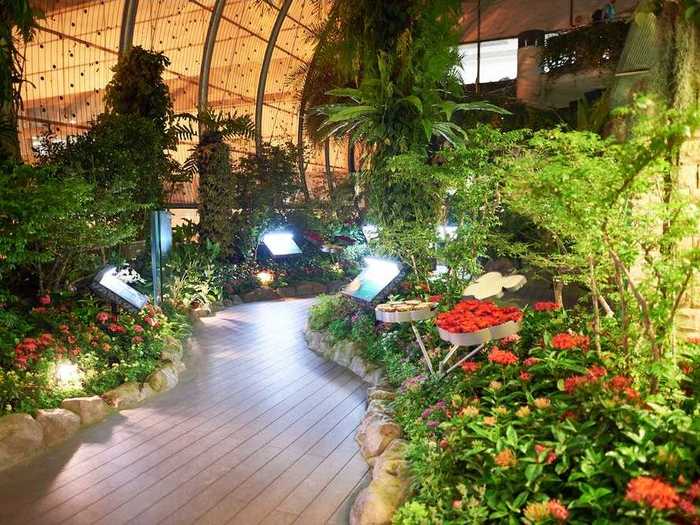
Singapore's Changi Airport has been named the world's best airport — and with amenities ranging from a free movie theater to 24-hour spas, it's no wonder.
But the aviation hub also boasts a butterfly garden that's home to more than 1,000 exotic butterflies, as well as a sunflower garden. The indoor greenery reflects Singapore's nickname, "City in a Garden."
In San Francisco, California, the California Academy of Sciences Living Roof houses a variety of plant life.
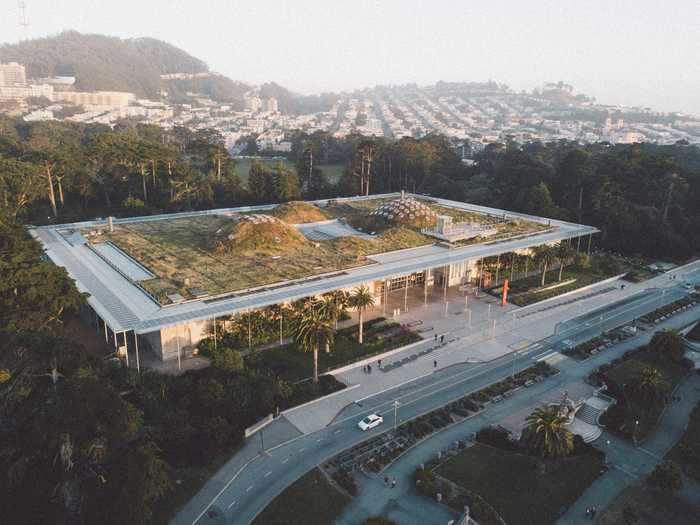
Located in San Francisco's Golden Gate Park, the California Academy of Sciences, which contains an aquarium, planetarium, and natural history museum, was designed by renowned architect Renzo Piano.
The cornerstone of the institution is its living roof, a hill-covered installation lined with 50,000 vegetation trays that hold an incredible 1.7 million plants.
"The idea was to make the roof of the new museum like a piece of the park flying. I also wanted to play with natural light, and with transparency, so that from the inside of the museum you can see where you are," Piano told the Academy.
The Ancient City of Sigiriya, found in Sri Lanka, dates back over 1,500 years.

Built between 477 and 495 CE, the Ancient City of Sigiriya — a UNESCO World Heritage Site —has been called the "eighth wonder of the world." Meaning "Lion's Rock," Sigiriya sits on the slopes and at the summit of a 590-foot granite peak.
Some of the oldest landscaped gardens on the planet are nestled among the site's intricate network of staircases and reservoirs, which extend from the mouth of an imposing lion made from brick and plaster.
Located in Medellín, Colombia, the Joaquin Antonio Uribe Botanical Garden features 35 acres of flowers, plants, and wild life.
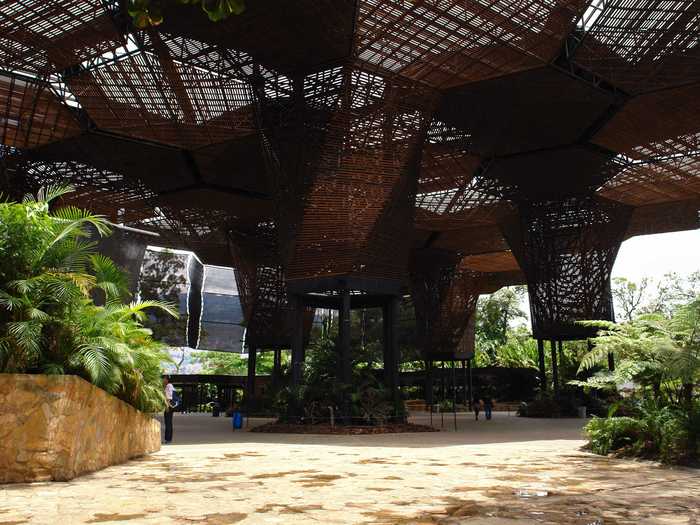
What stands out about the Joaquin Antonio Uribe Botanical Garden is its orchid display, or "Orquideorama" — a honeycomb-like structure that preserves the plants.
Located in Dubai, United Arab Emirates, the Dubai Miracle Garden has dubbed itself the largest natural flower garden in the world.
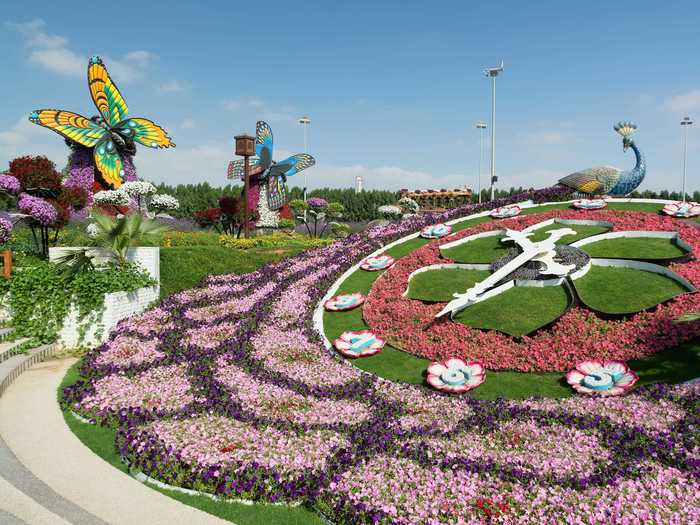
The Dubai Miracle Garden features 60 varieties of flowers. Spanning about 18 acres, the garden usually attracts more than one million people each year, according to CNN.
Its vibrant floral displays — which have included a life-size Emirates Airbus A380 — change seasonally.
Las Pozas, located in Xilitla, Mexico, is full of eccentric sculptures such as staircases that lead nowhere.
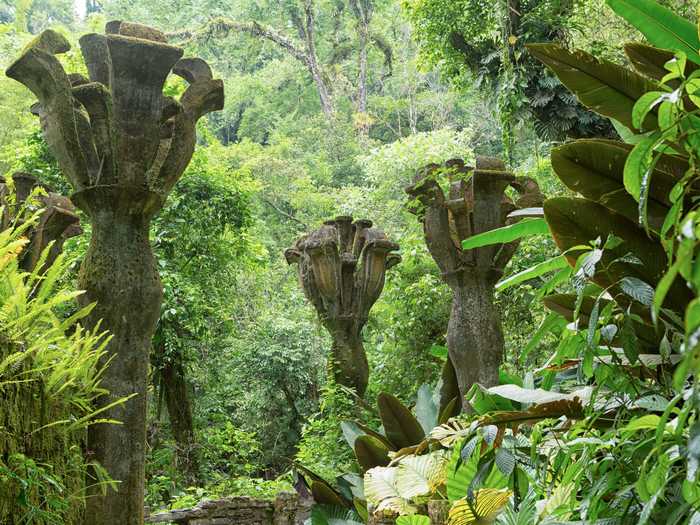
Las Pozas ("The Pools") is a sculpture garden created by Edward James, an English poet and art patron who supported surrealists like René Magritte and Salvador Dalí.
James built Las Pozas on a coffee plantation near Xilitla, in Mexico's Huasteca region. While the property once housed his collection of orchids and exotic animals, he began work on the sculpture garden in the 1960s.
It was co-designed with his friend Plutarco Gastelum, who built most of the sculptures. The site contains more than 30 structures, including plant sculptures and aforementioned winding staircases that lead nowhere.
Located in Enniskerry, Ireland, the Powerscourt Gardens date back to the 13th century.
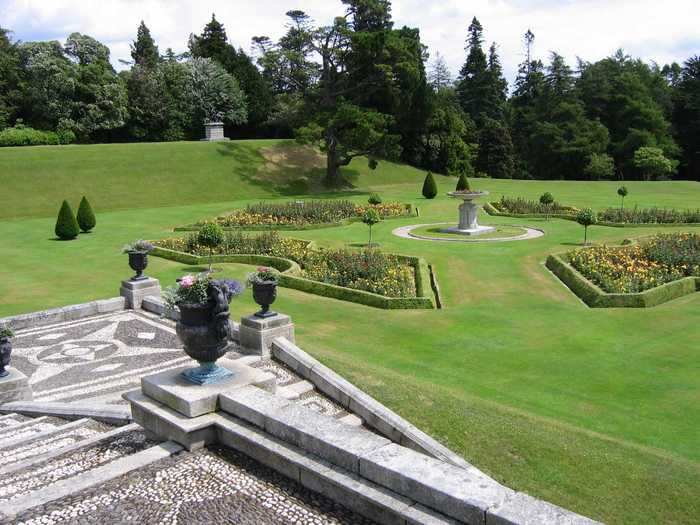
Situated south of Dublin in County Wicklow, Ireland, the 47-acre Powerscourt Gardens are divided into distinct areas, including an Italian garden and a Japanese garden.
The country estate used to be the home of the Viscount Powerscourt, a noble title in Ireland. It may be on the morbid side, but Powerscourt also boasts the largest pet cemetery in Ireland.
The Nong Nooch Tropical Botanical Garden is home to a miniature version of Stonehenge in Pattaya, Thailand.
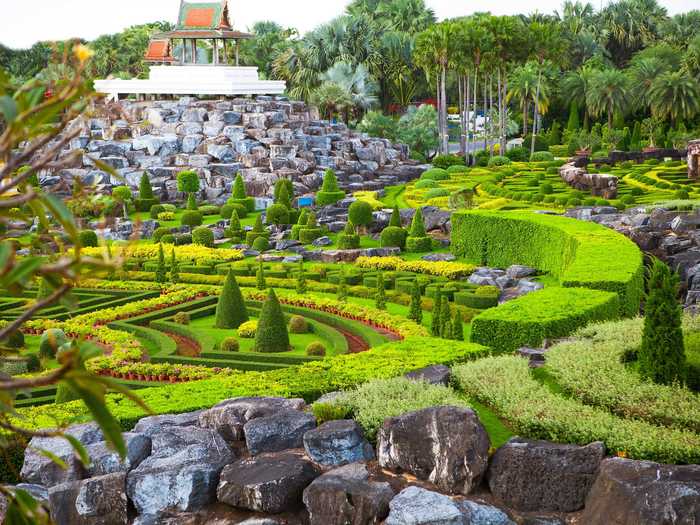
From animal sculptures to topiary trees, Nong Nooch also hosts traditional Thai dance performances or martial arts demonstrations.
Located in Lisse, Netherlands, the Keukenhof offers scenic fields of flowers that bloom each spring.
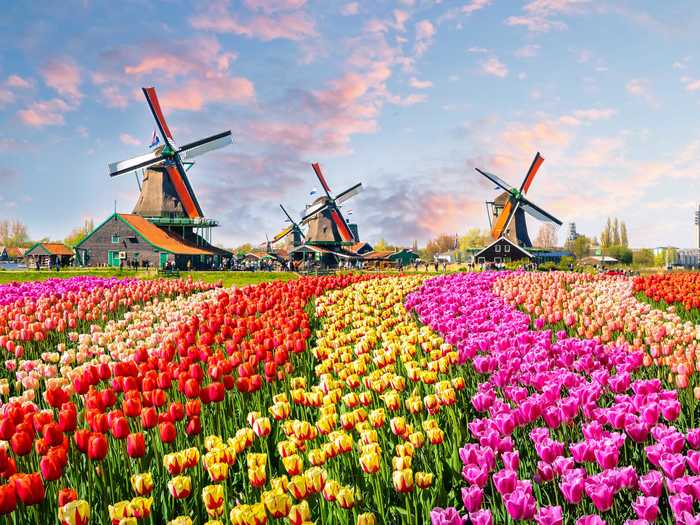
Located between Amsterdam and the Hague, Keukenhof is one of the world's largest flower gardens. Each year, 7 million bulbs are planted there, including Holland's famous tulips and other flowers like hyacinths and daffodils.
Open from March to May, Keukenhof bursts to life with colorful blooms every Spring. Although closed this year, you can tour it virtually.
Le Jardin Majorelle in Marrakech, Morocco, is known for the distinctive color of its fountains and garden walls: "Majorelle blue."
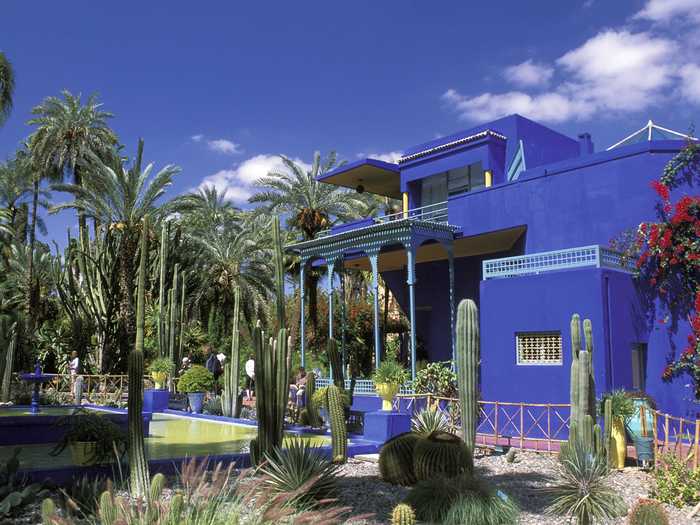
Cultivated by Jacques Majorelle, a French painter, this 110,000-square-foot garden of exotic and rare plants is accented by pops of cobalt blue. In fact, he trademarked the color found on fountains, garden walls, and other features throughout the garden and named it "Majorelle blue."
It's also known as the "Yves Saint-Laurent garden" because the fashion designer and his partner, Pierre Berge, bought the property in 1980, saving it from demolition 18 years after Majorelle's death.
Located in Lucca, Italy, the Torre Guinigi is a 145-foot tall brick tower topped with an array of holm oak trees.
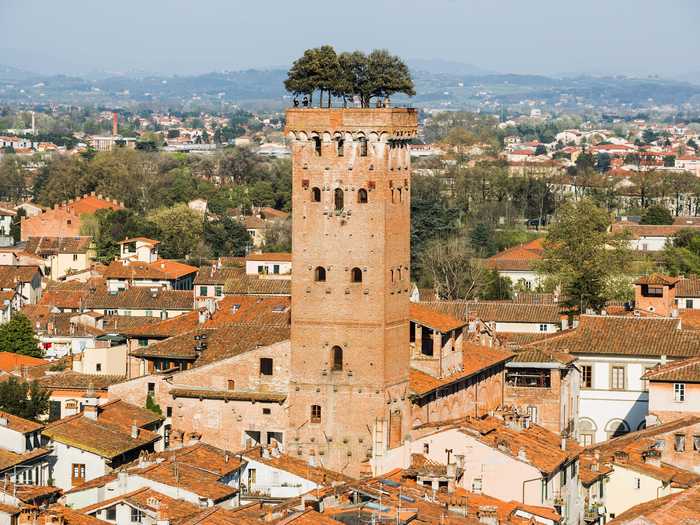
Built in the 14th century by silk merchants, it was used as a defensive tower during a time when Italy was plagued by raids and violence.
To ascend the tower, you need to climb 230 steps, but the view is worth the effort.
In Versailles, France, the Gardens of Versailles were built by the "king of gardeners" in the 1660s.
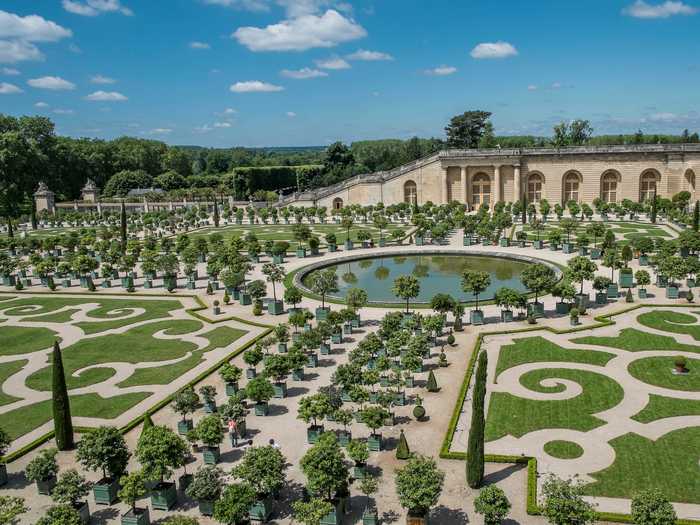
André Le Nôtre, "king of gardeners and Gardner to the King," was charged with designing the gardens of Versailles. Thousands of workers helped orchestrate the design, which involved trees imported from various regions of France.
Le Nôtre's plan was so complex that it required that the gardens be replanted about once every 100 years. Louis XVI and Napoleon III each did their part to revitalize the grounds, and most recently they were replanted following a severe storm in 1999.
In total, the gardens span 1,976 acres and are dotted with more than 200,000 trees.
Located in Asheville, South Carolina, the Biltmore gardens are part of a sprawling estate.
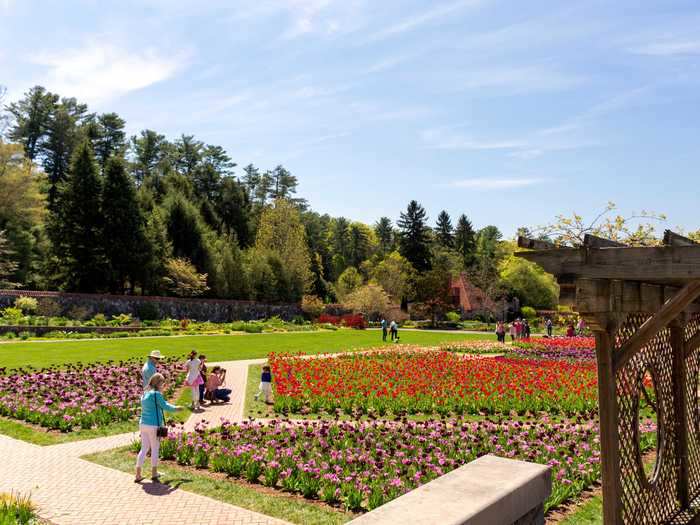
The gardens were designed by Frederick Law Olmsted, who also designed Central Park in New York City. In Spring, 80,000 flowers bloom in the estate's Walled Garden.
Butchart Gardens is located in Victoria, Canada, which is known as the "city of gardens."
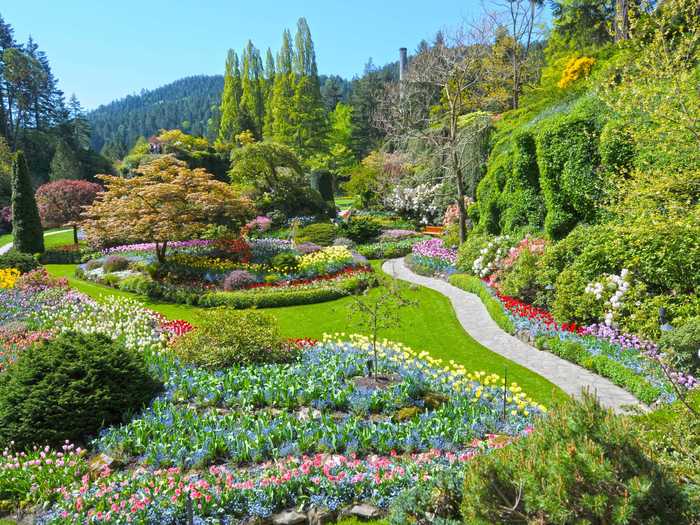
Spanning 55 acres, the Butchart Gardens features 900 varieties of plants. The land was once owned by The Portland Cement and the company's owner's wife, Jennie Butchart, transformed the area into the gardens that are enjoyed today by a million visitors a year.
READ MORE ARTICLES ON
Popular Right Now
Popular Keywords
Advertisement